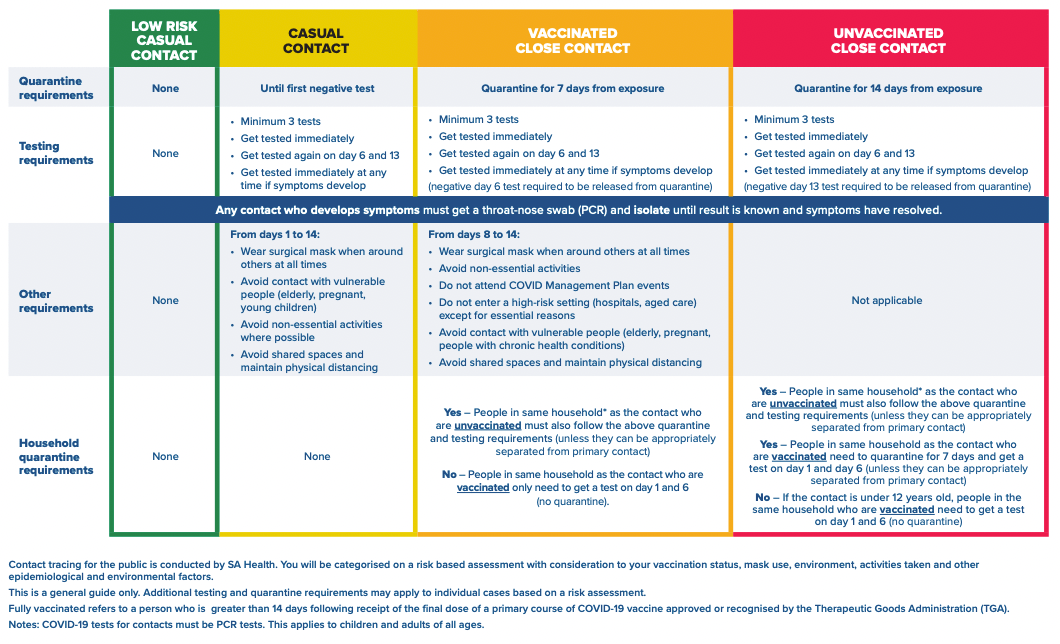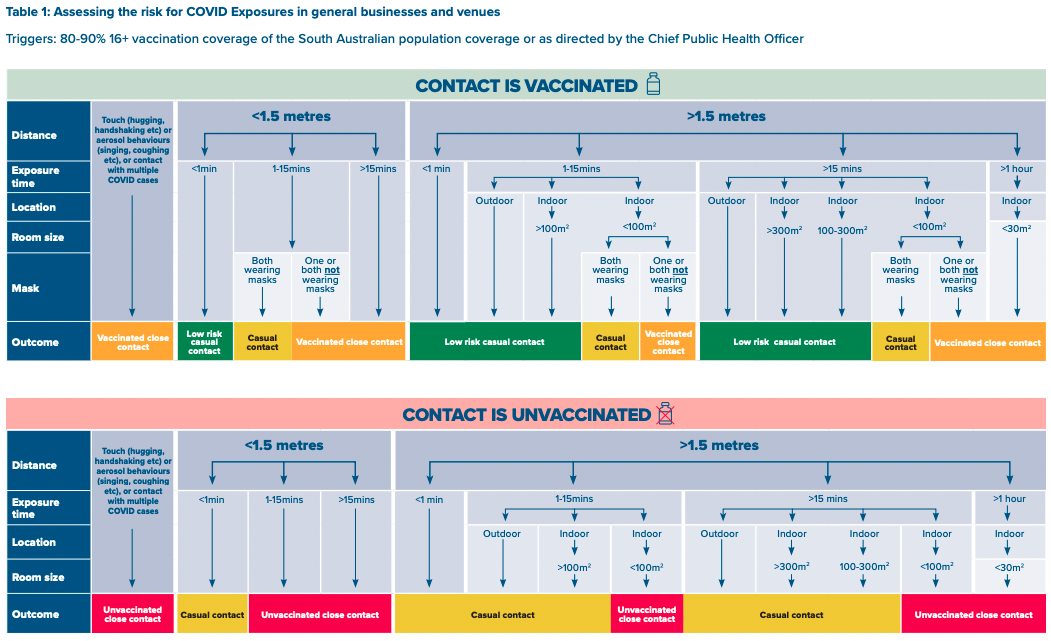SA’s new COVID rules after November 23
Fully-vaccinated South Australians will only have to quarantine for seven days if they come in close contact with a positive COVID-19 case and unvaccinated travellers will be allowed to come into the state after borders reopen next Tuesday.
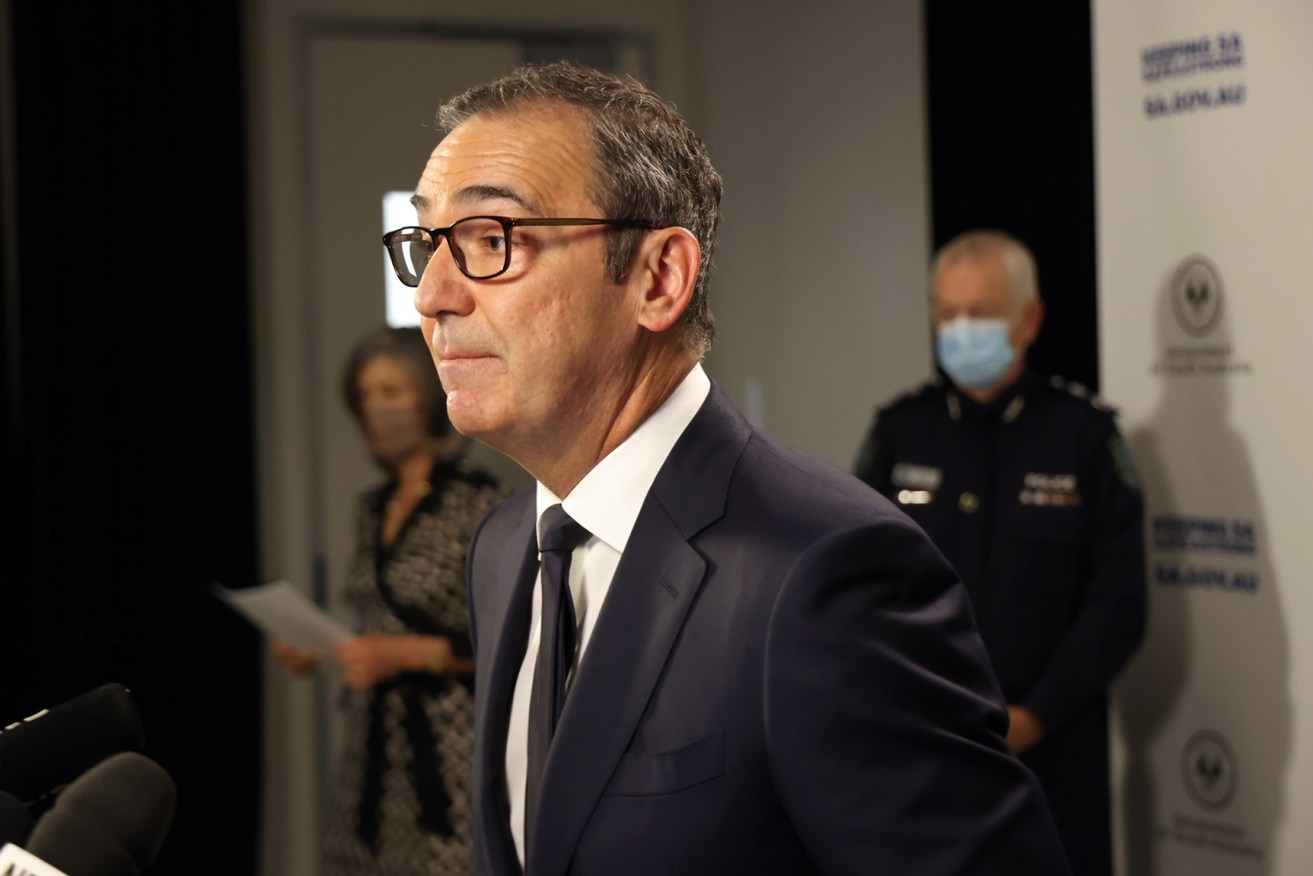
Premier Steven Marshall speaking to reporters this morning. Photo: Tony Lewis/InDaily
Premier Steven Marshall said that from November 23, South Australia would adopt a “more bespoke, tailored” quarantine policy that differed to the previous “heavy-handed” approach requiring all close or casual contacts of positive COVID-19 cases to isolate for 14 days.
Those who are fully-vaccinated will only need to quarantine for seven days if they are identified as a close contact of a positive COVID-19 case.
They will still need to get tested three times – on days one, six and 13 – or if they develop coronavirus symptoms.
Between days eight to 14 after coming in contact with a positive case, vaccinated close contacts will need to wear a surgical mask around others at all times and avoid non-essential activity, COVID management plan events, and visiting high-risk settings such as hospitals and aged care facilities.
This is a very big motivation for people to go out and get vaccinated as quickly as possible
They must also avoid coming into contact with vulnerable people such as those who are elderly, pregnant or who have chronic health conditions.
Those who are infectious or unvaccinated close contacts (including children aged under 12) will still need to complete the full 14 days of quarantine.
“We’re hoping this is going to very, very significantly reduce the number of people who will need to go into directed quarantine, but this still will be necessary,” Marshall said.
“This is a very big motivation for people to go out and get vaccinated as quickly as possible.”
People who are identified as casual contacts of positive cases – those who spent less than 15 minutes of face-to-face contact with a COVID-19 case – will only need to quarantine until they return their first negative test result.
They will still need to get tested on days six and 13, wear a surgical face mask, and avoid non-essential activity and coming into contact with vulnerable people for the 14 days.
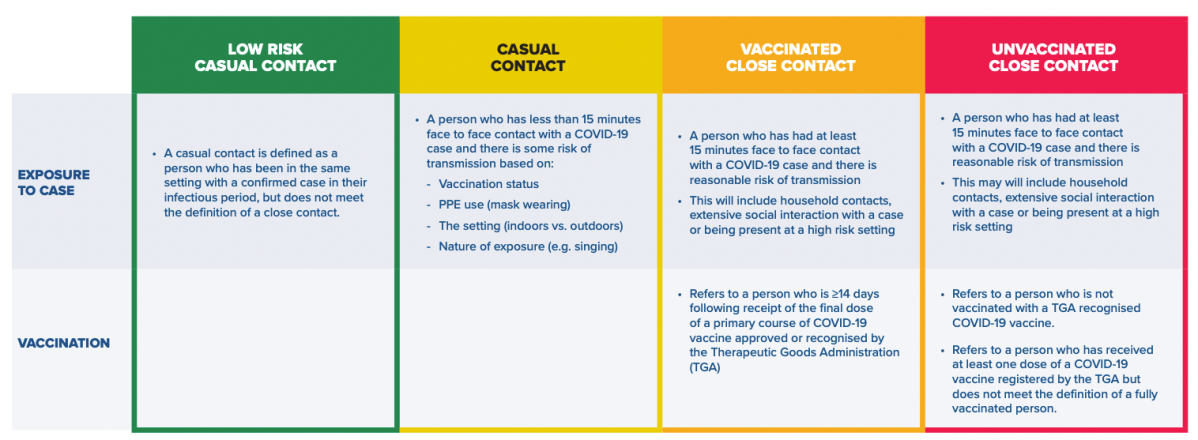
Table: SA Health
The changes are based on modelling from the University of Adelaide and Doherty Institute and will come into force next Tuesday, November 23, when South Australia is projected to reach its 80 per cent double-dose vaccination target and open its borders to the COVID-hit eastern states.
Marshall said SA Health’s Communicable Diseases Control Branch would undertake risk assessments of “inevitable” COVID-19 outbreaks and provide advice to individuals and businesses about isolation and testing requirements.
He said the risk assessments would consider a number of factors, including how close a person came into contact with a positive case, whether people were wearing masks, whether they were indoors or outdoors, the size of the space where the contact took place, whether there was physical contact and the vaccination status of the people involved.
“As you can see, a large number of considerations are looked at before we direct somebody into quarantine, or in fact, in many instances now just direct them to get some ongoing testing,” Marshall said.
“Previously, we had almost a zero tolerance to community transmission and that meant one single infection could set off a cluster which would lock down the entire state.
“But, as we get above that 80 per cent threshold, that’s no longer the threat, the risk is reduced and so therefore we will reduce the requirements on individuals and businesses.”
Chief public health officer Professor Nicola Spurrier said the Government would “tweak” the quarantine and testing requirements as the pandemic unfolded to determine whether they were overwhelming the healthcare system.
She said testing clinics run by SA Pathology and private providers were “ramping up” in preparation for the expected surge in demand.
Latest data shows 73.9 per cent of South Australians aged over 16 are fully-vaccinated, while 85.3 per cent have received at least one dose.
Unvaccinated travellers to be allowed in SA
The State Government has previously said that only fully-vaccinated interstate travellers would be allowed to enter South Australia from November 23, but Marshall today revealed “others will be able to come in, but they will still be required to do the 14 days of quarantine”.
“We still are managing people to come in even if they’re not fully vaccinated,” he said.
“As people come in we will be requiring them to, if you like, pre-register and we will be releasing the details of that very soon.”
Marshall said unvaccinated travellers would be only be allowed into South Australia if they had an exemption.
Asked why unvaccinated travellers would be allowed into SA, he said there were “certain circumstances where vaccination is not appropriate”.
“There are some medical reasons and there are some compassionate reasons where people can’t get vaccinated fast enough,” he said.
“We’ve proven ourselves to be as flexible as we can while still keeping the protection in place in South Australia and that will continue into the future.”
Vaccinated interstate travellers will be allowed into South Australia without having to quarantine from November 23.
However, people will still need to quarantine if they are travelling from local government areas where there is community transmission and less than 80 per cent of the population is fully-vaccinated.
Businesses to stay open after COVID exposure
From next Tuesday, businesses will not need to close for deep cleaning if they are identified as an exposure location.
They will instead only be subjected to a “standard clean”.
Spurrier said the change was based on evidence that the delta coronavirus variant is predominately spread via aerosol transmission as opposed to surface contact.
“A standard clean is not just a spit and a polish, it’s actually a proper clean, but it doesn’t have to be that level of deep clean that some businesses have undertaken in the past,” she said.
“Hopefully that will reduce the impact on the business and the length of time they need to close.”
The Government has also released general guidance to businesses if a COVID-positive person visits their premises, outlining how they can determine the transmission risk and under what circumstances they need to close.
Spurrier said the guidance would “give some empowerment to businesses about what to expect if they have a case at their business”.
“You might want to start considering whether you want all your staff vaccinated or not,” she said.
“You might look at what we provided today and think, gee the implications are going to be much worse for me if I don’t have fully-vaccinated staff.
“You might want to think about whether you want unvaccinated clients coming in as well.”
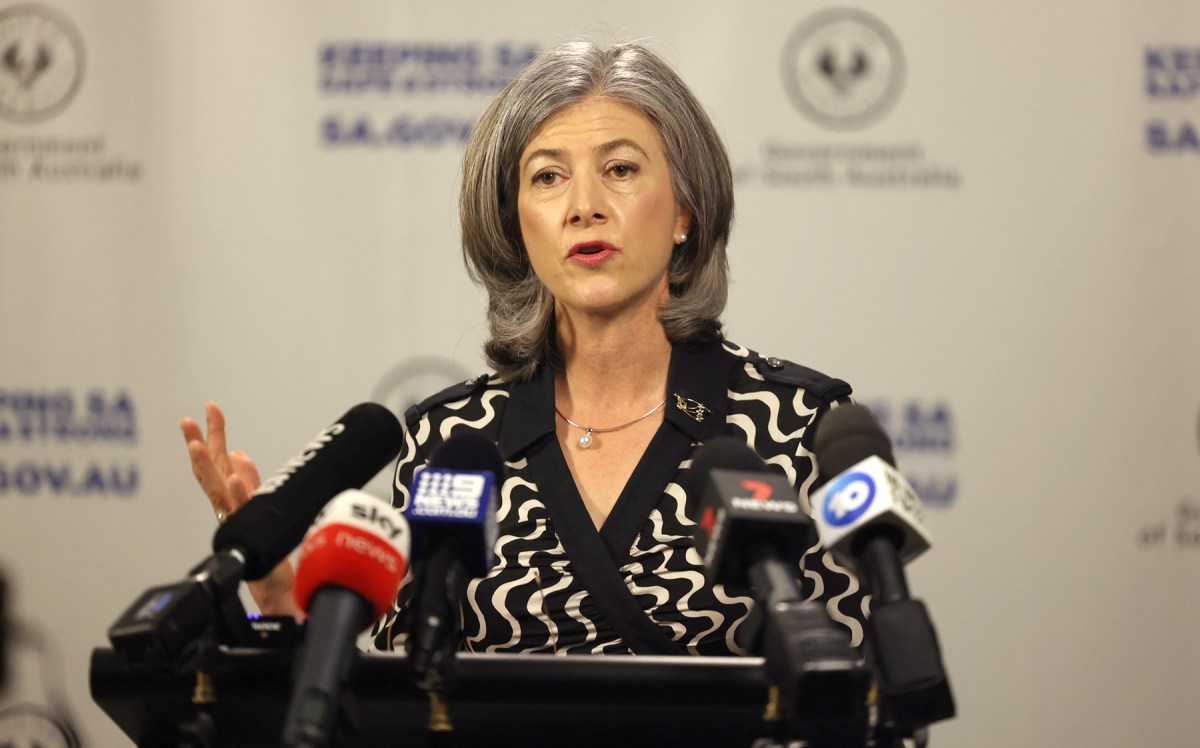
Chief public health officer Professor Nicola Spurrier speaking to reporters this morning. Photo: Tony Lewis/InDaily
But the Government is yet to release information about the restrictions that will apply to businesses once South Australia reaches the 90 per cent double-dose vaccination threshold.
“We will be releasing a series of these more specific and targeted (plans) – there will be one which is for education, there will be one for critical infrastructure in South Australia, for primary and community health and there will also be one for essential business, for example transport and freight,” Marshall said.
“But today we’re getting our general information out for the vast majority of small businesses in South Australia.”
Spurrier said the plans included “some allowance” for people to leave quarantine if they are considered an essential worker.
“That might be in something like energy or in a particular situation where you couldn’t not have that person there to perform that critical task,” she said.
Masks to remain “for a long time”
The State Government is still unsure whether the mask-wearing mandate will be lifted once South Australia surpasses the 90 per cent double-dose vaccination threshold for those aged 12 and over.
But Marshall said masks would be required “for a long time in certain settings”, such as in hospitals and aged-care facilities.
He acknowledged that masks “can be very annoying”, but he said they would be necessary once South Australia opened its borders to the eastern states.
“We now already say that they’re only required for indoor public space and I think this has provided huge relief for people, although plenty of other people would like to have them completely removed,” he said.
“The modelling on this, for example, is very, very clear that at the moment at that 80 per cent threshold, it is still much safer to keep those masks on in those public indoor spaces.
“But we will be getting more modelling, we will be updating that modelling, we will be putting the real data in, we will be looking at the experience interstate and applying it here in South Australia and I hope that we can continue to ease those measures.”
